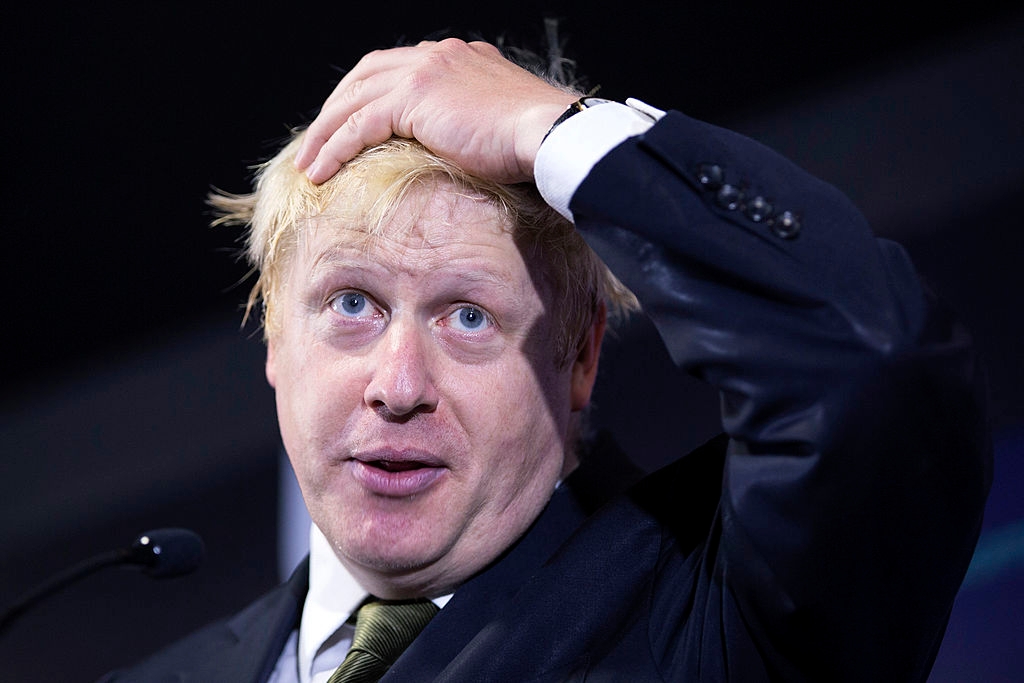Boris Johnson fell flat on his face at yesterday’s G7 summit. Having called for tougher sanctions against Russia to punish the Kremlin for its support for the Assad regime in Syria, Boris laid the ground for the G7 to announce a firm crackdown. In the end, the G7 steered clear of any new sanctions, saying that it didn’t want to push Putin into a corner. So where does this leave Boris?
Boris Johnson’s ‘first big foray into geopolitical diplomacy foundered’, says the Daily Telegraph. The paper says that there are some crumbs of comfort for Boris though. Despite the criticism being directed at the Foreign Secretary, Boris can claim some credit for ‘bringing the US more into line with Britain’s approach’. But his failure to convince his European allies of the need for tougher sanctions on Russia is a consequence of the ground not having been ‘adequately prepared’, the paper argues. While Boris has still not given up the ghost on the prospect of a crackdown on the Kremlin, his claim that sanctions could be back on the agenda once an investigation into the chemical weapons attack is over sound unlikely: ‘the history of such inquiries suggests little will come of that,’ the Telegraph argues. There is a lesson for the Foreign Secretary on yesterday’s events, the paper concludes. Boris was right to make it clear to President Putin that he would be best off ‘dumping Assad’. But he must remember to ‘only threaten to wield the stick when it is already in your hand.’.
Boris is right to believe that the Russian army is ‘contaminated’ by its co-operation with the Assad regime, argues the Sun, which comes out in defence of the Foreign Secretary. But when it came down to the G7 actually getting tough with sanctions on Moscow’s generals, ‘the weak G7 bloc bottled it’, the paper says. The Sun says that this flimsy attitude was a result of fears among German leaders and the EU ‘about sending the Kremlin a strong ultimatum’. ‘So much for the Remainers’ claim Brussels would stand up to Putin,’ concludes the Sun.
‘Recent events have given the unsettling impression that Mr Johnson was making foreign policy on the hoof,’ says the Times. In its editorial, the paper says that in the run-up to the G7’s decision, there seemed to be a difference between Boris’s call for further sanctions and a weaker statement on the subject made by Downing Street. But the apparent lack of professionalism did not stop there. ‘Contrary to the normal conventions of summitry, Mr Johnson also failed to secure the backing of the rest of the G7 for further sanctions before announcing his position,’ points out the Times. In the end, there was ‘no mention of any punitive measures’ against Russia, the paper points out.
There is something uneasy about Britain’s willingness to walk with the Trump administration over its actions in Syria, says the Guardian, which argues that this co-operation smacks of ‘of a certain desperation in the face of Brexit’. The paper goes on to argue that Boris’s own apparent inconsistencies on the subject also ‘seem in part to be caused by the attempt to remain aligned with the US leadership’. This attitude should worry us, says the Guardian. After all, the fear is that ‘applause for Mr Trump’s decision may encourage him to take further military action, with all the attendant risks’. The Trump administration already appears to be indicating its keenness to intervene in Syria. While Donald Trump’s Twitter account suggests that North Korea could be next. ‘The need for non-military responses (are) all the more pressing given US unpredictability,’ the Guardian concludes.







Comments